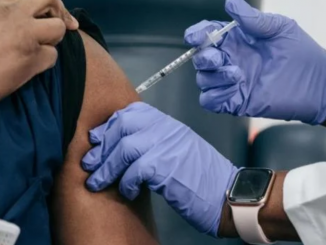
A new study indicates COVID hospitalization data may be more bark than bite.
Throughout the pandemic, hospitalization metrics have been touted as the most reliable data point relaying the seriousness of the pandemic. The number of cases relies upon testing — and people generally only get tested if they are symptomatic — while deaths are a lagging indicator.
However, a new study examining nearly 50,000 COVID hospital admissions across more than 100 Veterans Affairs hospitals appears to undermine the veracity of this belief.
That’s because COVID data does not differentiate the severity of cases of hospitalized patients.
In fact, the study, which has yet to be peer-reviewed, indicates that a significant number of people who have been included in the “hospitalized” data on COVID dashboards experienced only mild symptoms, were asymptomatic, or were admitted to the hospital for reasons unrelated to COVID, but tested positive for COVID while admitted.
The Atlantic reported:
The study found that from March 2020 through early January 2021—before vaccination was widespread, and before the Delta variant had arrived—the proportion of patients with mild or asymptomatic disease was 36 percent. From mid-January through the end of June 2021, however, that number rose to 48 percent. In other words, the study suggests that roughly half of all the hospitalized patients showing up on COVID-data dashboards in 2021 may have been admitted for another reason entirely, or had only a mild presentation of disease.
This increase was even bigger for vaccinated hospital patients, of whom 57 percent had mild or asymptomatic disease. But unvaccinated patients have also been showing up with less severe symptoms, on average, than earlier in the pandemic: The study found that 45 percent of their cases were mild or asymptomatic since January 21.
There are several limitations to the study, according to the Atlantic:
- Most importantly, although the study has a vast sample size, it includes few woman and no children.
- Every VA hospital tests admitted patients for COVID, which is not a universal practice.
- Most of the data used in the study was collected before the Delta-attributed case spike.
What is the significance of the study?
The most important finding of the study, according to Daniel Griffin, an infectious disease specialist at Columbia University, is that it demonstrates the efficacy of COVID vaccines.
“People ask me, ‘Why am I getting vaccinated if I just end up in the hospital anyway?'” Griffin told the Atlantic. “But I say, ‘You’ll end up leaving the hospital.'”
Graham Snyder, the medical director of infection prevention and hospital epidemiology at the University of Pittsburgh Medical Center, agreed.
“It’s underreported how well the vaccine makes your life better, how much less sick you are likely to be, and less sick even if hospitalized,” Snyder said. “That’s the gem in this study.”
*story by The Blaze


